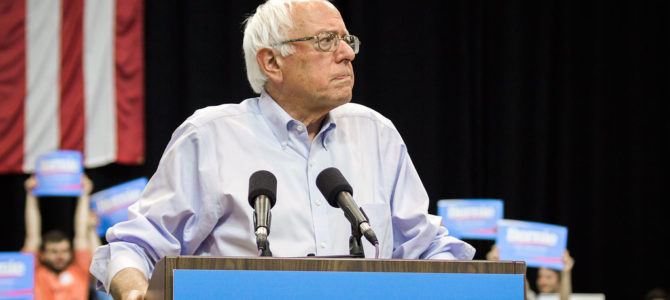2020 Democratic presidential candidate Bernie Sanders of Vermont said in an interview published Tuesday that he doesn’t believe he needs to tell voters how it’s possible to fund his massively expensive plans for socialized medicine dubbed “Medicare for All.”
When pressed by CNBC’s John Harwood on how a Sanders administration would come up with enough revenue for the program, Sanders dismissed the concern.
“You’re asking me to come up with an exact detailed plan of how every American – how much you’re going to pay more in taxes, how much I’m going to pay. I don’t think I have to do that right now,” Sanders asserted.
White House rival Sen. Elizabeth Warren of Massachusetts, who co-sponsored the Sanders “Medicare for All” bill in the Senate and is pushing a nearly identical health plan on the campaign trail, has also dodged questions on how she would fund the program.
Numerous budget experts agree that it would be impossible to fund “Medicare for All” without drastically hiking middle-class taxes. While Warren notably evaded questions on whether she would spike taxes on the middle class in this month’s Democratic debate in Ohio, a new report from the independent public policy think tank the Committee for A Responsible Federal Budget shows that it would be mathematically impossible to pay for the program without doing so.
“There is simply not enough available revenue from high earners and businesses to cover the full cost of eliminating premiums, ending all cost-sharing, and expanding coverage to all Americans and for (virtually) all health services,” the authors of the study wrote.
The approximate price tag for Sanders and Warren’s proposal comes in at an estimated $30 trillion over its first ten years, according to the experts at the Committee for A Responsible Federal Budget. Their study concluded that even introducing the most confiscatory tax rates on high-income families and corporations would only generate $11 trillion, only a third of the required revenue.
A similar study from the conservative Heritage Foundation came to the same conclusion. David Burton, a senior economist at the foundation, reported that even if the federal government were to confiscate every dollar Americans earn above $200,000 every year, it would only cover half of Democrats’ far-left agenda including Medicare for All, the Green New Deal, a universal basic income, socialized college, and other extreme proposals.
“The reality is that progressive promises can only be funded by radical tax increases on the middle class, a dramatic increase in annual federal deficits and the national debt, or a combination of the two,” Burton wrote in the report.
While Warren continues to avoid saying whether she would raise everyone’s taxes to support “Medicare for All,” Sanders has been more honest, admitting during the October debate that a middle-class tax increase would be required to fund the enormously expensive proposal, although Sanders has been light on the details.
As Democrats struggle to hammer out a way to pay for their health fantasies, the U.S. debt and deficit have been hitting all-time highs, with the federal deficit reaching nearly $1 trillion in the 2019 fiscal year primarily due to entitlements. The Congressional Budget Office is forecasting the deficit to exceed that number next year, and programs like Social Security and Medicare are projected to go insolvent in the near future.









